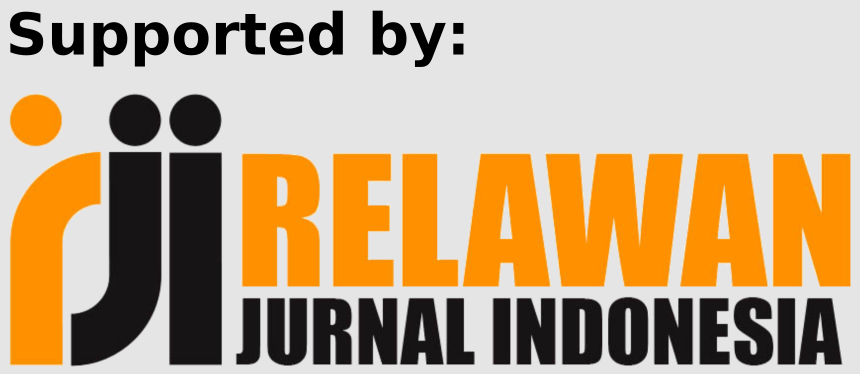The experience of parents in providing Islamic sexual education to their children
DOI:
https://doi.org/10.31101/jhtam.2577Abstract views 753 times
Abstract
Downloads
References
Aji, Soesilo, & Windrawanto. (2018). Implementation of sex education in early childhood by parents and teachers at TK Pamekar Budi Demak. Proceedings of the Elementary School Teacher Education Study Program and the Mathematics Education Study Program Kudus: Muria Kudus University.
Amirudin. (2017). Sexual Education in Children in Islamic Law. Wahana Karya Ilmiah Pendidikan, 1(1), 14–25.
Asfaw, M., Tolu, L. B., Urgie, T., Nigatu, B., Bekele, D., & Shiferaw, M. A. (2021). Guidelines and best practice recommendations on contraception and safe abortion care service provision amid covid-19 pandemic: Scoping review. Ethiopian Journal of Reproductive Health, 13(1), 11–20. https://doi.org/10.21203/rs.3.rs-25326/v1
Awaru, Idris, & Agustang. (2020). Sexual Education at High School Sinjai East. International Conference on Social Sciences, 1(1), 944–947.
Fauziyah. (2019). Mother’s Role in Children’s Education in Islam According to Abdullah Nashih Ulwan. In Undergraduate thesis. Bandar Lampung: UIN Raden In.
Fitriani. (2019). Cultivating Children’s Independence through Learning at Sentra Balok.
Hidayati, D., Setyorini, D., & Afrian Nuari, N. (2018). Differences Complications During Perinatal in History of Women With Diabetes Mellitus and Obesity Gestational. 9(2), 148–160.
Hos, & Upe, A. (2018). Free Sex Among Students (A Case Study in Masaloka Village, Masaloka Raya Archipelago District, Bomabana Regency). Neo Societal, 3(2), 425–432.
Iorga, Pop, Gimiga, Păduraru, & Diaconescu. (2021). Assessing the opinion of mothers about school-based sexual education in romania, the country with the highest rate of teenage pregnancy in europe. Medicina (Lithuania), 57(8), 1–13. https://doi.org/10.3390/medicina57080841
Joodaki, Nedjat, Dastjerdi, V., & Larijani. (2020). Ethical considerations and challenges of sex education for adolescents in Iran: a qualitative study. Journal of Medical Ethics and History of Medicine. Journal of Medical Ethics and History of Medicine., 2(1), 1–15. https://doi.org/10.18502/jmehm.v13i2.2664
Kusumaningtyas. (2018). Parents’ Experience in Providing Reproductive Health Education to Adolescents with Blind Disabilities in Yogyakarta. Graduate Thesis. Yogyakarta: Universitas Gadjah Mada.
Maimunah. (2017). Mapping parental knowledge and applying models of sex education to adolescents. Proceedings of the X National Scientific Meeting of the Indonesian Developmental Psychological Association.
Penamas, & Buana. (2021). Optimizing the role of parents in early childhood sexual education. Jurnal Penamas Adi Buana, 4(02), 65–71.
Purwandari, Kadir, Kartika, Shafira, Yudhiarti, & Istiqamah. (2018). Increasing Parent Involvement In Education. Warta LPM, 21(2), 143–151.
Putra. (2018). Teenagers and Sex Education. https://doi.org/10.31604/ristekdik.2018.v3i2.61-68
Rabbitte, & Enriquez. (2019). The Role of Policy on Sexual Health Education in Schools: Review. Journal of School Nursing, 35(1), 27–38. https://doi.org/10.1177/1059840518789240
Rachmawati, & Nurhidayah. (2020). Early Sexual Education in Children. DEVOSI, 1(2), 1–22.
Rofi’ah, Handayani, & Rahmawati. (2020). The Effectiveness of Ginger and Lemon Grass Consumption in Overcoming Nausea and Vomit. 7.
Rummy. (2017). Parental Interaction Relationship with Free and Aggressive Sexual Behavior in Adolescents. Undergraduate Thesis. Surabaya: Universitas Airlangga.
Semiawan. (2020). Qualitative research methods: types, characteristics and advantages. Jakarta: Grasindo.
Sugiyono. (2018). Quantitative Research Methods, Qualitative and R&DBandung: Alfabeta.
Suhasmi, & Ismet. (2021). Sex Education Materials for Early Childhood. Jurnal Golden Age, 5(2), 164–174.
Tanjung. (2020). The Role of Parents in Early Childhood Education During the Covid-19 Pandemic. Murhum : Jurnal Pendidikan Anak Usia Dini, 2(1), 64–73. https://doi.org/10.37985/murhum.v1i2.18
Verganingtia, & Desstya. (2022). Exploratory Study of Science Concepts and Islamic Values in Circumcision Culture and Their Integration in Learning Science in Elementary Schools. Jurnal Basicedu, 6(4), 5614–5623.
Yanti. (2019). Phenomenon of Child Marriage on the South Coast. JCE, 2(4), 302–312.
Downloads
Published
How to Cite
Issue
Section
License
Copyright (c) 2022 Ema Waliyanti, Ni’ma Afni Maulida

This work is licensed under a Creative Commons Attribution-ShareAlike 4.0 International License.
Authors who publish with Journal of Health Technology Assessment in Midwifery agree to the following terms:
- Authors retain copyright and grant the journal right of first publication with the work simultaneously licensed under a Creative Commons Attribution License (CC BY-SA 4.0) that allows others to share the work with an acknowledgment of the work's authorship and initial publication in this journal.
- Authors are able to enter into separate, additional contractual arrangements for the non-exclusive distribution of the journal's published version of the work (e.g., post it to an institutional repository or publish it in a book), with an acknowledgment of its initial publication in this journal.
- Authors are permitted and encouraged to post their work online (e.g., in institutional repositories or on their website) prior to and during the submission process, as it can lead to productive exchanges, as well as earlier and greater citation of published work.

Journal of Health Technology Assessment in Midwifery is licensed under a Creative Commons Attribution-ShareAlike 4.0 International License..













